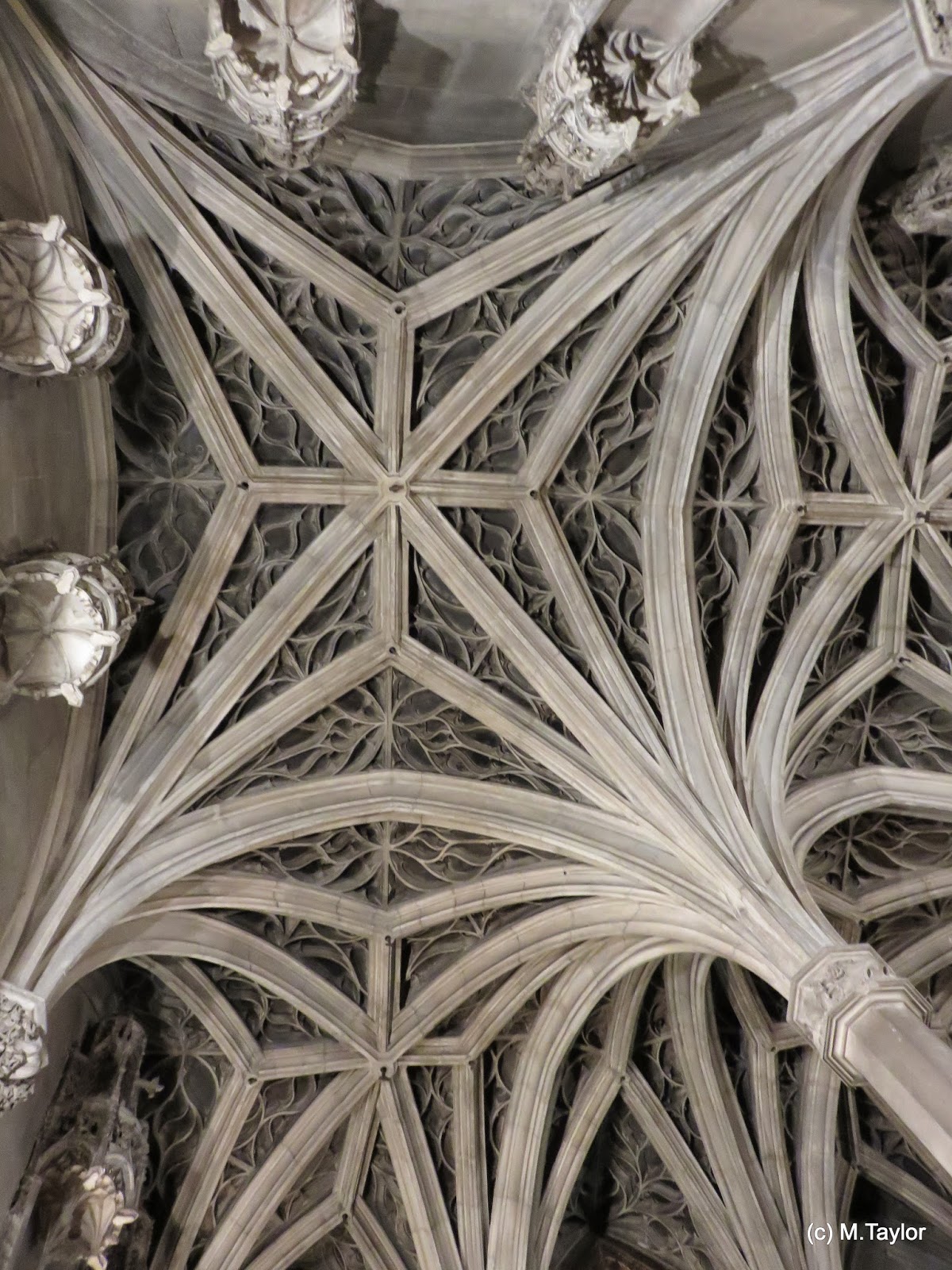The museum is housed in the former Benedictine Abbey of Cluny, near the Sorbonne, in very attractive buildings.
It is famous for housing the 'Lady and the Unicorn' series of medieval tapestries, but also has a huge collection of other artifacts.
 |
| Swabian wood carving |
When we visited, the museum was holding an exhibition of Swabian wood carvings.
These were impressive by virtue of their age and state of preservation, but I have to admit that they did not appeal to me very much aesthetically - it is extraordinary that they have survived since the 1500's.
 |
| Stained glass - Partridge |
The Abbey was built on the site of a Roman Bath-house, parts of which remain, and the museum also has a number of pieces of Roman carving (mainly the heads and bases of various columns) as well as later additions such as statues from various churches around Paris. (Apparently a lot were removed as they were seen as Royalist, during the revolution)
 |
| Ivory Casket - 1300 |
There is some stained glass (I enjoyed the Partridges), and other art work, including reliquaries, a few illuminated manuscripts and some works in ivory.
I particularly liked an intricately carved ivory box from around 1300, illustrated with scenes of knights and ladies, and courtly love.
Then there are the tapestries themselves.
The 'Lady and the Unicorn' series consists of 6 linked tapestries, 5 of which illustrate the five senses, and the 6th, "À mon seul désir" which has been interpreted in a number of ways, including as love, free will, or even renunciation of the emotions or passions raised by the first 5 senses.
 |
| Taste |
 |
| "À mon seul désir" |
Mostly rabbits, but there were also hawks, storks, foxes and a magpie.
There was also something which the guide said was a baby unicorn, although how they decided it wasn't just an ordinary foal (it had no horn) they did not disclose.
I have a particular weakness for the rabbits, although there was also a rather nice stork or heron, lying on it's back in order to fit among the flowers!
The 'Lady and Unicorn' tapestries are not the only ones, there are also a whole series of 23 tapestries detailing the life of St. Stephen, completed in 1490. (There is a scene where his body is exposed to the beasts, which features a rather lovely porcupine).
 There are others showing daily life, including one of a woman spinning using a drop spindle, which includes a cat playing with the thread - obviously cats have changed very little since the 1500s!
There are others showing daily life, including one of a woman spinning using a drop spindle, which includes a cat playing with the thread - obviously cats have changed very little since the 1500s!
There is also the Abbot's chapel, which is small, but exquisite.
I loved the delicacy of the stone carving in the ceiling.
It is not a museum I am familiar with - this was my first visit, but it is well worth it. We spent most of the morning there, and it would not have been difficult to stay longer. We mostly only left because we got hungry!




1 comment:
A most lovely place.
Post a Comment